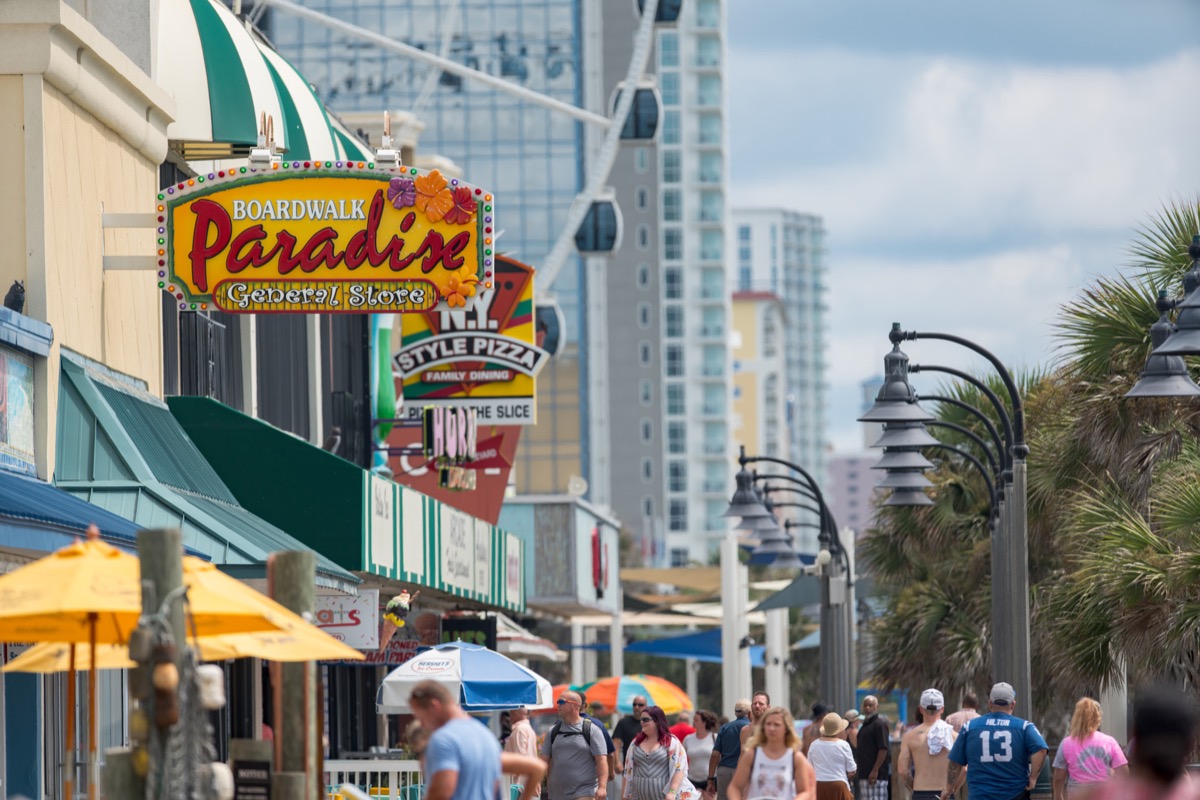In Ohio, as of June 23, at least 17 students from Belmont County tested positive for COVID-19 after developing symptoms five days after returning from a trip to Myrtle Beach, South Carolina, CNN reported. There are also at least two positive contact cases—meaning infected individuals who did not go to the beach, but interacted with those that did after they returned. Nearly 100 students from the Ohio county traveled to the Myrtle Beach area and returned the weekend of June 13, so Robert Sproul, Deputy Health Commissioner of the Belmont County Health Department, is worried that positive case numbers could continue rising.ae0fcc31ae342fd3a1346ebb1f342fcb “We’ve been quarantined for so long, the state had a travel ban in place,” Sproul told CNN. “We knew they would travel as soon as they could. We just hoped they would be responsible with social distancing and wearing masks.” RELATED: For more up-to-date information, sign up for our daily newsletter. But Ohio isn’t the only state with an outbreak related to Myrtle Beach. As of June 22, the Preston County Health Department in West Virginia has linked 30 positive coronavirus cases back to Myrtle Beach, according to The Dominion Post. The outbreak began after Preston County had gone two weeks without a new confirmed case. And according to the Associated Press, two other West Virginia counties are linking cases to the beach—at least three in Kanawha County, and at least five in Cabell County. “We would like to ask all Preston County residents that have traveled back from Myrtle Beach, any other beach, or any crowded vacation destination in the last two weeks to please keep others in mind and self-quarantine for 14 days upon return,” the Preston County Health Department said in a public statement released June 17. Myrtle Beach hotels were able to start taking reservations again on May 15, when The New York Times reported that Horry County—the county that Myrtle Beach resides in—only had 283 COVID-19 cases, but coronavirus numbers have been steadily rising ever since. According to The Sun News, the South Carolina Department of Health and Environmental Control has reported more than 2,000 cases in Horry County, labeling it a virus hotspot. As of June 23, the county has reported more than 100 new confirmed coronavirus cases every day for the past seven consecutive days. And as for Myrtle Beach’s coronavirus safety precautions? The county doesn’t require face masks, only encourages people to wear them. Reporters from The Sun News noted that, despite large crowds packing tourist attractions in the beach area, only about 10 percent of people in the crowds were seen wearing face masks during the first two weekends after the city reopened. However, this hasn’t stopped tourists from visiting Myrtle Beach, and neither the beach nor neighboring states have issued any kind of bans on people taking a trip to this popular destination. In fact, The New York Times reported that rental occupancy rates in Horry County had risen from 3 percent in April to 74 percent in mid-June, according to research from Coastal Carolina University. And while many experts have said going to the beach is a relatively low-risk summer activity during the COVID-19 pandemic, that doesn’t mean coronavirus safety precautions should be ignored—especially when outbreaks are being linked to specific beaches. “Maybe reconsider your destination,” Sproul cautioned future travelers while talking to CNN. “If you’re going to a hotspot and not taking precautions, you’re asking for trouble … It could happen in your town.” And for more destinations to avoid, check out The 10 Most Dangerous Places You Can Still Get Coronavirus, Experts Say.
